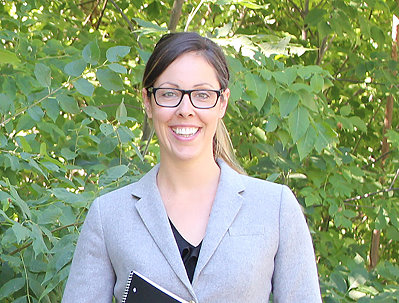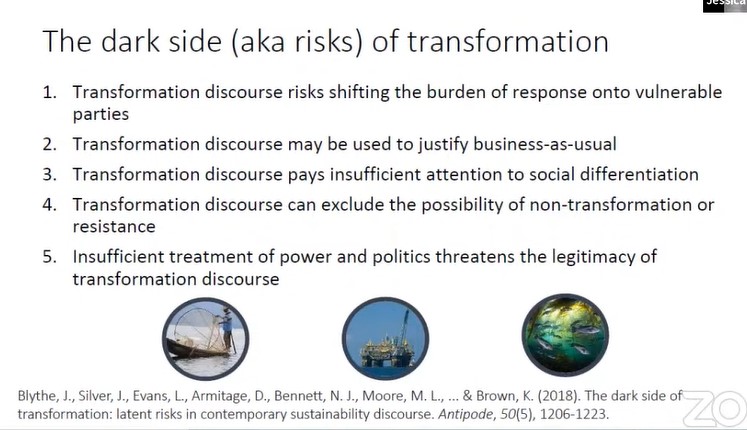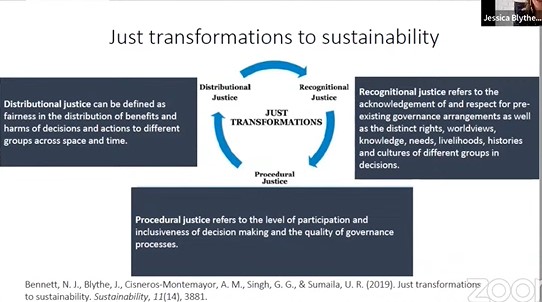 This month's webinar of the research platform 'From vulnerability to viability' (V2V) was delivered by Dr. Jessica Blythe on 24 June. She argued that transformations towards ocean equity and blue justice are needed to address the inequitable distribution of access to ocean benefits and resources, as well as disproportionate exposure to harms. Yet, actions that fundamentally restructure relationships between people and the ocean are highly political and can produce substantial risks for coastal communities and the marine environment. This seminar explores recent scholarship and practice on navigating this critical and complex space.
This month's webinar of the research platform 'From vulnerability to viability' (V2V) was delivered by Dr. Jessica Blythe on 24 June. She argued that transformations towards ocean equity and blue justice are needed to address the inequitable distribution of access to ocean benefits and resources, as well as disproportionate exposure to harms. Yet, actions that fundamentally restructure relationships between people and the ocean are highly political and can produce substantial risks for coastal communities and the marine environment. This seminar explores recent scholarship and practice on navigating this critical and complex space.
Jessica is an environmental social scientist with expertise in resilience and sustainability science. At the broadest scale, her research aims to understand how communities perceive and respond to social-ecological change (including climate change), and their differential capacities for adaptation and transformation. One branch of Jessica’s empirical work is grounded in coastal systems, where she draws on complexity and commons theory to explore the influence of social-ecological dynamics on resource management and livelihood outcomes. The second strand of her empirical work focuses on transformations towards sustainability. Over the past decade, she has worked with communities and colleagues in Australia, Canada, Malawi, Mozambique, and Solomon Islands. She is currently an assistant professor with the Environmental Sustainability Research Centre at Brock University, Canada.
Jessica drew attention to the power of words such as 'transformation' being used all over the place in conjunction with the multiple crises we are facing as they are framed with different intentions and are not neutral. She started by outlining a number of aspects of what she called the dark side of transformation to draw attention to the potential pitfalls and the need to retain a critical view and analyse potential or real consequences.

But then she also looked at how transformational processes could be positively based on recognitional justice, procedural justice and distributional justice and what needed to be considered and put into practice to make it happen.

Watch the full webinar here. It's time well spent! Thank you Jessica!








